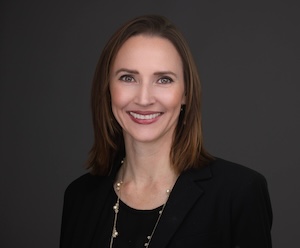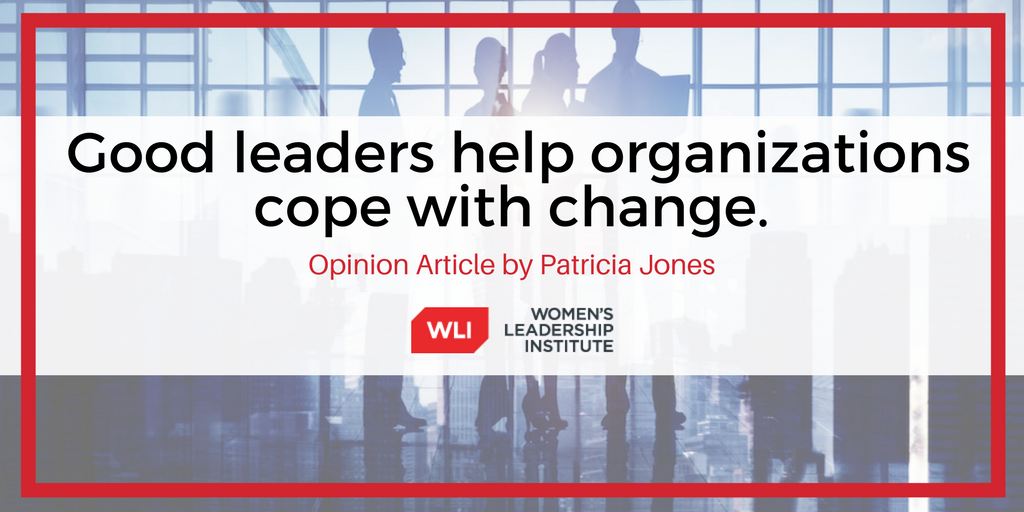This article, written by Patricia Jones, originally published as an op-ed in Dessert News.
View original article or continue reading…
Good leaders help organizations cope with change.
“What leaders really do: They don’t make plans; they don’t solve problems; they don’t even organize people. What leaders really do is prepare organizations for change and help them cope as they struggle through it.” — John P. Kotter
In 1589, inventor William Lee applied to Queen Elizabeth I for a patent on a new type of knitting machine that could produce far higher-quality stockings than weavers could make by hand. The queen denied him his patent, saying, “consider thou what the invention could do to my poor subjects. It would assuredly bring to them ruin by depriving them of employment, thus making them beggars.” In spite of Lee’s setback, over the next three centuries the U.K. became the world leader in textile manufacturing.
It has been called the “fear of technological unemployment,” and workers have been suspicious of it for centuries. But today, as robotic advancements perform more of the mechanical and intellectual jobs that have been the mainstay of millions of employees, the impacts are striking. It seems technology is taking up more slack more quickly than ever. The U.S. has morphed from an agrarian society to manufacturing and now is becoming more dependent on services and technology for economic success. People and companies that are nimble and willing to adapt are coping quite well. Others who are resistant to change seem to be falling behind in the race.
However, companies that are emerging most successfully seem to understand the growing altruistic desires of their workforce. While many of Utah’s companies are experiencing difficulty attracting quality workers, an array of Utah’s visionary companies are attracting a flood of talented applicants. Why? Take the case of Cotopaxi. Under the adept leadership of Davis Smith, the company not only offers quality products, but also embeds positive social impact into its core mission. Reading the company’s website says it all:
“At Cotopaxi, we like to shake things up. Those scraps of leftover fabric? We’re making gear out of them. That old way of insulating a jacket? We’re using llama fiber. By taking an inventive, considered approach to product design, we believe we can help make a positive impact on the world.”
A significant part of coping with change is the understanding that humans are social animals. We want to engage with others, to hear others’ histories and experiences and to create new ideas with them. Among the most essential human ability is empathy, a characteristic that will never be replaced by machines, not even emotion-sensing, emotion-expressing machines. Aspiring to an isolated corner office seems less important today. On the contrary, in addition to making a decent living, many of today’s workers desire to improve the lives of others. Like Cotopaxi, many of Utah’s emerging industry leaders are part of a global movement to use business as a force for good.
Looking ahead to the workforce of the future, the World Economic Forum says, “Firms can no longer be passive consumers of ready-made human capital. They require a new mindset to meet their talent needs.”
Over the past couple of years, I have had the privilege of visiting a number of Utah’s fastest-growing companies that, to me, demonstrate today’s new work environment: Workfront, Pluralsight, DOMO, Jive, CHG Healthcare, Instructure, Ancestry and Qualtrics, to name a few. Many comprise a portion of Utah’s “Silicon Slopes” and are helping to churn our state’s economy. They are adapting to change internally and externally.
If you have not witnessed it yourself, let me describe it. The new workplaces are transparent and democratic and are committed to diversity and inclusion. Employees work in teams. They sit at the same table, regardless of position. They don’t have cubicles or other physical barriers. They talk openly and collaboratively. They wear casual clothing. They do not necessarily adhere to strict working hours. Their boardrooms are transparent glass without blinds. If the room is scheduled for one hour, everyone understands that they leave once the hour is up.
No one is more important than the other. It’s democratic. There is no internal caste system. Everyone pulls together to get the work done. They are intentional about including all kinds and colors of people because they understand that diversity and inclusion are not necessarily the same thing and that both help the bottom line. They care about how their employees and products impact society. They are not afraid to try new ways of doing business. They are impatient with bureaucracy. And, because of these practices, they are making it difficult for other companies to “steal” their talented people.
This is the new work environment within the new economy. It’s here to stay, and it will continue to make us better people and our economy prosperous. We will need not only to adapt to the change, but to embrace it. In the words of John Kotter, good managers help organizations cope with complexity. On the other hand, authentic leaders help organizations cope with change.

Melanie Jones
Chief Executive Officer
Melanie Jones is the Chief Executive Officer of the Women’s Leadership Institute, Utah’s premier organization dedicated to elevating professional women through cohort-based training programs and corporate partnerships. In her role, Melanie is committed to changing the experience and narrative of what it means to be a businesswoman...

